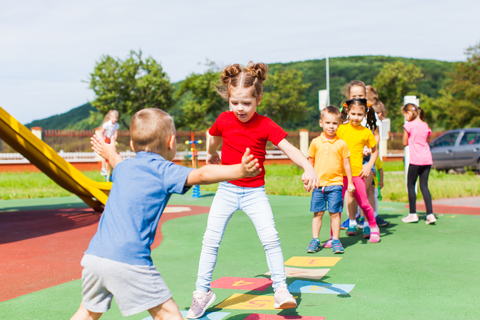Learning
What do Children Need to Succeed in School?
by Hanne S. Finstad.
Many of us think that schools have a responsibility to educate children in a way that helps them succeed later in life. We want our kids to learn essential skills such as reading, writing, and arithmetic. But what if today’s school system overlooks some more basic and foundational skills?
A series of scientific studies show that advanced cognitive skills are necessary if children are to succeed in subjects such as mathematics and reading. They need the ability to be creative and flexible. Self-control and self-discipline are also crucial. Children who do not master abilities like these have an increased risk of falling outside of society as adults. They have poorer health outcomes, a lower income, and a larger percentage of criminal behaviour than people who mastered advanced skills such as these during childhood.
How can we train cognitive abilities?
An article in Science from 2011 delves deep into this issue. Their findings show that cognitive training has the most significant effect on the children who need it the most, for instance, children with ADHD or other learning difficulties. Training advanced cognitive abilities does not require expensive equipment. All teachers can help their students improve their advanced cognitive abilities, even in underfunded schools.
1. Exercise the brains working memory
Exercises that target the working memory appear to be important. Traditional memory games are great for this. Companies such as the leading American company CogMed offer computer games for memory as well. CogMed’s games have a documented effect, published in many well-regarded scientific journals.
2. Exercise the body
It also turns out that cardiovascular exercise is important for the brain. Children aged 8-12 improve their ability to be flexible and creative thinkers when their level of cardiovascular endurance training increases. Maybe schools should opt for gym every single day, rather than once or twice per week?
3. Practice self-control and discipline
Sports that emphasize self-control, discipline, and character-building, like Taekwondo, can moreover help to improve advanced thinking in children. These kinds of activities encourage children to reflect on what they are doing in the present moment, where they are, and what they have to do. Children who participate in these sports also have to think about their behaviour, how to reach a goal, and plan how they can improve. A similar effect can be achieved through meditation or yoga that encourages focus and awareness of the present moment and the surroundings.
3. Prioritize playing
Play is also very important. The school systems that are superior at fostering advanced cognitive abilities all include playing. Montessori schools are one such system. Montessori pedagogues employ something called normalization, where they focus on order, impulse control, and discipline. These kinds of abilities might in turn explain why students at Montessori schools are better at reading and maths than other children on average.
We have to prioritize the development of these kinds of skills early in life if we are to help children succeed as adults. Children do not become creative by watching TV. Nor are they physically active when sitting in front of an iPad or computer screen. A lack of playing can reduce their self-control and discipline. Children from backgrounds with high socioeconomic status tend to do well regardless. But what about the children who do not receive enough stimuli at home because of a lack of resources? I worry that these kids are made especially vulnerable in the digital age.
Source: Science, vol 333, pp 959-963, 2011.

